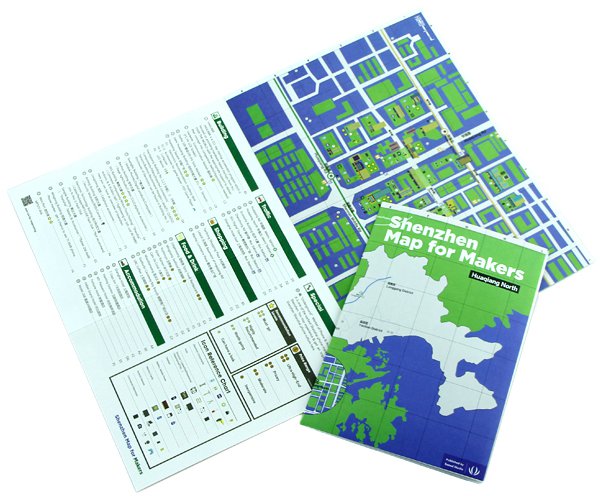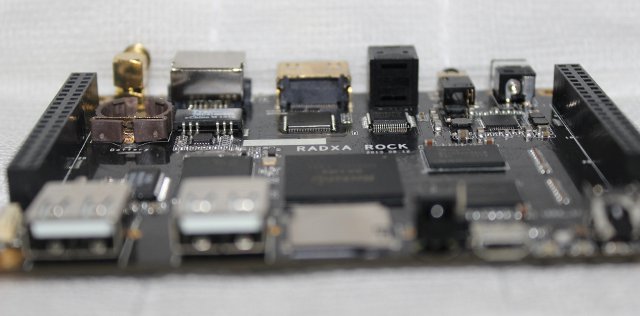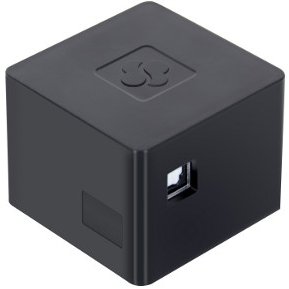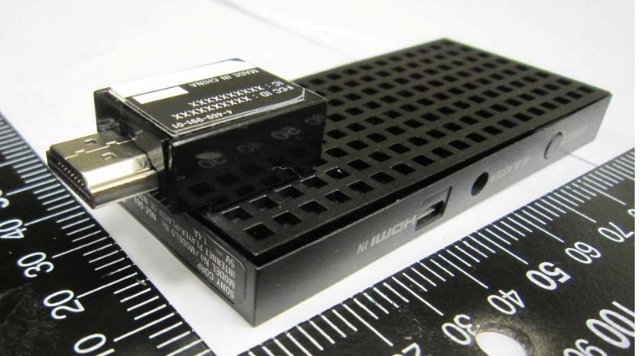Huaqiangbei is the place in Shenzhen, China, to shop for electronics components and devices. There are several multi-story buildings with lots of different electronics fares, and if you look for some specific components it’s more than likely to be found there. However it may take some time to find what you need there, but it may just have become a little easier, as Seeed Studio has published a map that you can buy for $5, or simply download for free (PDF). The map has 2 main sections: Some general information about Shenzhen such as transportation (border crossing, station), leisure, main locations of factories, and a bit more. Huaqiangbei map with short descriptions of what you can buy in the different buildings, as well as places to eat, and stay. Seeed Studio will also setup a wiki, so that makers can add interesting places they went shopping in Shenzhen.
Radxa Rock Development Boards with Rockchip RK3188 Are Available for Developers Now
As previously mentioned, work was in progress to design development boards based on Rockchip processors. Radxa Rock and Radxa Rock Lite, 2 boards powered by Rockchip RK3188, are now available to early developers, and the final versions will soon be broadly available. Here are the boards specifications: SoC – Rockchip RK3188 ARM Cortex-A9 quad core @ 1.6Ghz + Mali-400 MP4 GPU System Memory – 2GB DDR3 @ 800Mhz (1GB DDR3 @ 800Mhz for Lite version) Storage – 8GB Nand Flash (4GB Nand Flash for Lite version) + micro-SD SDXC up to 128GB Video Output – HDMI 1.4 up to 1080p@60hz, andAV output Connectivity: 10/100M Ethernet port WIFI 150Mbps 802.11b/g/n with antenna Bluetooth – Bluetooth 4.0 (Not in Lite version) Audio I/O – Audio S/PDIF, headphone jack USB – 2x USB 2.0 host port, micro USB OTG Debugging – Serial Console Misc – IR sensor, power key, recovery key, reset key, […]
SolidRun Announces Cubox-i Platform with Freescale i.MX6 for as low as $45
SolidRun has been providing tiny development platform such as Cubox and Cubox Pro featuring Marvell ARM compatible processors. However, the price of those platforms are well over $100, so the company decided to provide lower cost development platforms (Cubox-i) based on Freescale i.MX6 Solo/Dual Lite/Dual/Quad that sells for $45 and up. There are four versions: Cubox-i1 – Freescale i.MX6 Solo, 512 MB RAM, 10/100M Ethernet, optional Wi-Fi/Bluetooth module. Price: $44.99 Cubox-i2 – Freescale i.MX6 Duallite, 1GB RAM, 10/100M Ethernet, optional Wi-Fi Bluetooth module. Price: $69.99 Cubox-i2Ultra – Freescale i.MX6 Dual, 1GB RAM, Gb Ethernet (470 Mbit real), Wi-Fi and Bluetooth, SATA II. Price: $94.99 Cubox-i4Pro – Freescale i.MX6 Quad, 2GB RAM, Gb Ethernet (470 Mbit real), Wi-Fi and Bluetooth, SATA II. Price: $119.99 The devices measure 55mm x 55mm x 42mm. The full specifications are better seen in the comparison table found in SolidRun website. The 4 models all boot […]
NSZ-GU1, Sony’s Next Google TV Box will be an HDMI TV Stick
Since 2010, Sony has been working on Google TV device, and last year they announced Sony NSZ-GS7, a Google TV 2.0 set-top box. This year, nothing have been announced yet, but a few pictures of a new device have shown up in the FCC site. Sony NSZ-GU1 will be some sort of HDMI TV stick that you insert into your TV, except it looks more like a small set-top box has been glued onto an HDMI TV dongle. Here are the specifications derived from the FCC fillings and pictures: SoC- Marvel 88DE3108-A1 dual core processor (Marvell Armada 1500). System Memory – 1GB RAM Storage – 4GB NAND Flash (Toshiba THGBM5G5, If I’ve read correctly) Video I/O – HDMI output (MHL) 720p/60, micro HDMI input 720p/60 Connectivity – 802.11b/g/n WiFi (AzureWave AW-NH390), Bluetooth 3.0 USB – 1x micro USB port (for power only?) Misc – IR Blaster Power – 5V via […]
Embedded Linux Conference Europe 2013 Schedule – Build Systems, Security, Device Tree, Debugging & Profiling Techniques, and More
Embedded Linux Conference Europe 2013 will conveniently start right after LinuxCon 2013, last 2 days (October 23-24), and take place at the same location: the Edinburgh International Conference Center, Edinburgh, United Kingdom. The Linux Foundation has published the schedule for the conference, so I’ll make my own virtual schedule with sessions that I find particularly interesting. Thursday – 24th of October 9:30 – 10:10 – Timeline For Embedded Linux by Chris Simmonds, Consultant, 2net Limited Today, Linux is woven into the fabric of our technology. Things such as printers, routers, TVs and phones all have their own “Inner Penguin”. Yet it was never originally intended to be used beyond desktop and server PCs. A lot of things had to happen before Linux could break out of the PC environment and make its way in the world as a jobbing jack-of-all-trades. Since the early beginnings of embedded Linux in the late 1990’s many people have contributed […]
Preliminary Reverse-Engineered VPU Driver (CedarX) for AllWinner A10 Plays H.264 Videos
Allwinner framework for their Video Processing Unit (VPU) in their Cortex A8 processors (A10, A13, etc..) is called CedarX. It relies on a binary blob that is working just fine for Android, but not so well for Linux. So several developers started to reverse-engineer CedarX a while back, to fix issues with Linux, and provide an open source driver. Yesterday, they upload a video to show the development progress, and show Big Buck Bunny 1080p H.264 playback using libvdpau-sunxi open source driver with mplayer, and without any binary blobs. The video resize function are not been implemented yet, which is why we can only see the left corner of video, but nevertheless it shows an open source hardware video decoder is on the way. That means once the Lima driver for Mali-400 GPU, and libvdpau-sunxi driver for AllWinner VPU are implemented (which may still take a while), AllWinner A10 SoC […]
Pressy Adds a Physical Button to Your Phone via the Headphone Jack
As smartphones manufacturers are mostly getting rid off physical buttons on smartphones, Pressy is looking to add a smart one (think Morse code) via your headphone jack. It allows you do common tasks, such as turning on your flashlight, taking a quick photo, or calling your girl (or man), by the click, or a few clicks, of a button. This little add-on has already proved to be popular with some, as the developers have already raised $100,000 via Kickstarter for their $17 toy. There’s does not seem to be anything special inside the button/jack, and all the “magic” occur with the app (Available for Android only at the moment), which let you configure action based on short/long key presses like you would do with Morse code. If you want to use you headphone, simply remove Pressy, insert it in its optional key chain, and place your headphone to use them as […]
Linaro 13.08 Release With Linux Kernel 3.11 and Android 4.3
Linaro 13.08 has been released with Linux Kernel 3.11-rc6 (stating), Kernel 3.10.9 (LSK – beta), and Android 4.3. This month is the first release based on Android 4.3, which was only pushed to AOSP at the end of last month. I can also see work on new SoCs/hardware this month with Texas Instruments Keystone II ARM Cortex A15+DSP SoC and Fujitsu AA9 board (Which processor?, I could not find out). A lot of work also appears to have gone in OpenEmbedded, further optimizations have gone into NEON optimized AES encryption in OpenSSL, and more. It’s also the first time I can see a Ubuntu Raring engineering build image for HighBank (Calxeda Energycore). Here are the highlights of this release: Android Engineering Android stack was tuned to achieve 100% CTS pass result on Android 4.3 Analyzing the UEFI EDK II boot loader for Android completed, implementation of fastboot application and USB […]












